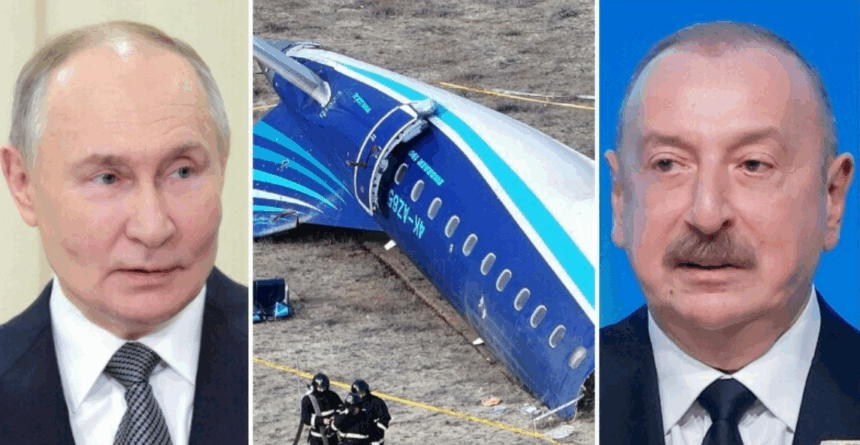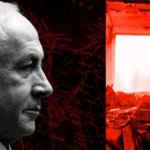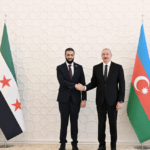On Christmas Day 2024, a jet from Azerbaijan Airlines (AZAL) was shot down by Russia while en route from Baku to Grozny, near Aktau, Kazakhstan. The crash killed 38 of the 67 passengers and crew, and evidence quickly suggested that Russian air defenses had mistakenly targeted the civilian flight. President Vladimir Putin offered condolences and a limited apology, but the Kremlin has since failed to provide any transparent investigation or accountability. As of July 2025, Azerbaijan has officially declared its intent to apply to international justice, demanding punishment for those responsible and compensation for the victims’ families and the aircraft.
President Ilham Aliyev’s tone has become increasingly confrontational. At the Third Shusha Global Media Forum last week, he stated:
“Our demand is natural. Those who shot down our plane must be punished. We will not forget this.”
He emphasized that Baku has repeatedly attempted to engage with Moscow through prosecutorial channels, but Russian authorities continue to respond with a vague: “the investigation is ongoing.”
The airliner disaster was only the catalyst. On June 27, 2025, a supposedly routine police operation in Yekaterinburg spiralled into an international scandal. Acting on allegations tied to decades-old organized-crime investigations, Russian special forces stormed the homes of ethnic Azerbaijani men—some Russian citizens, others long-time residents. What followed was a brutal display of force: windows were shattered, families terrorized, and dozens beaten. Two brothers, Ziyaddin and Huseyn Safarov, died in custody. Their bodies, once repatriated to Baku, bore unmistakable signs of torture and blunt-force trauma. An Azerbaijani autopsy confirmed what many had feared: these were deliberate killings, carried out with extreme cruelty.
For Aliyev, the Yekaterinburg raid was far more than a law-enforcement action—it was a geopolitical provocation. In swift retaliation, Baku denounced Russia’s “colonial behavior,” canceled all cultural shows featuring Russian artists, and froze diplomatic channels. Within days, Azerbaijani authorities detained two Russian journalists from Sputnik Azerbaijan on espionage charges and arrested additional Russian nationals—presented as tourists or tech workers—on allegations of drug trafficking and cybercrime. Courtroom photographs of these detained Russians, showing bruises reminiscent of the Safarov brothers’, laid bare a painful symmetry and underscored that tit-for-tat retaliation had begun in earnest.
The Kremlin, for its part, responded with mixed messaging. Dmitry Peskov, Putin’s spokesman, acknowledged that the countries were experiencing a “difficult period” but insisted the relationship had a “solid foundation” and that “law-abiding Azerbaijani citizens enjoy well-deserved respect in Russia.” Yet Peskov also defended the Russian legal system and warned that those who violate its laws “will be prosecuted.”
While the Kremlin continues to publicly downplay the rupture, its messaging strategy reveals a good-cop, bad-cop dynamic. State-aligned Telegram influencers, or Z-bloggers, have launched online smear campaigns against Azerbaijan, calling for embargoes and even military reprisals. One influencer mockingly wrote, “Let the tomato sellers on the border start smelling of heat,” referring to Azerbaijani fruit and vegetable vendors in Russian cities. Russian MP Konstantin Zatulin warned that Moscow risks losing all influence in the South Caucasus, which could affect internal Russian stability.
From Resentment to Confrontation
Speaking at the Shusha Global Media Forum, Aliyev’s tone toward Moscow was markedly different from previous years. Not only did he avoid any reference to Russia or President Putin—a notable departure from diplomatic protocol—but he also emphasized support for Ukraine’s resistance and sovereignty.
When Ukrainian journalists posed the question of advice to Ukraine in the face of occupation, Aliyev did more than offer platitudes. He issued a clear strategic maxim: “Never recognize Russian occupation.” This injunction went to the heart of statecraft under duress. By formally accepting an occupier’s claims, a government relinquishes both the legal argument and the moral high ground necessary to press for restoration; by contrast, resolute refusal preserves those levers of international law and popular legitimacy. Aliyev illustrated his point by recounting Azerbaijan’s own path: Baku had refused to accept the status quo in Nagorno‑Karabakh for decades, choosing sustained diplomatic pressure and, when diplomatic channels stalled, carefully calibrated military operations. That combination, he reminded listeners, had enabled Azerbaijan to reclaim its territory—proof positive, in his words, that “refusal to accept occupation can create the conditions for successful recovery.”
While his remarks carried symbolic resonance, they also represented a shift in Azerbaijan’s alignment, placing greater emphasis on the international legal framework and solidarity with other states facing territorial disputes.
Western Enablers
While Azerbaijan’s shift owes much to its own agency, it has also been shaped—and in some respects encouraged—by Western actors seeking proxies to counterbalance a weakened Russia. Ukraine, stripped of air and naval parity, lacks the capacity to directly confront Moscow. Into that void stepped the United Kingdom, the European Union, and other Western powers, who have quietly cultivated Baku as a secondary front. UK intelligence sharing and arms sales to Azerbaijan have bolstered Baku’s confidence in challenging Russian overreach. London’s outreach has included training programs and diplomatic backing at the U.N., signaling to Aliyev that Britain views Azerbaijan as a strategic partner in the broader contest with Russia
Similarly, the European Union’s eagerness to secure alternative energy routes has amplified support for the Trans-Anatolian and Trans-Adriatic pipelines, reducing European dependence on Russian gas and tying Baku’s fortunes to Brussels. By underwriting infrastructure that bypasses Russian territory, the EU has implicitly endorsed Azerbaijan’s turn away from Moscow. In both cases, Western incentives have created the conditions for his government to gamble on a harder line—risks that, absent such encouragement, might have seemed too great.
Zangezur Corridor: From Russian Foothold to Western‑Led Trade Artery
Amid shifting military and diplomatic currents, Azerbaijan has repositioned the Zangezur Corridor not merely as a logistical necessity but as a geopolitical fulcrum in its Westward turn. Originally outlined in the 2020 Russia-brokered ceasefire as a land route linking Azerbaijan proper with its Nakhchivan exclave via Armenia—with Russian border guards providing oversight—the corridor was designed to entrench Moscow’s post-war role in the region. But by 2025, with Russia weakened in Ukraine and Armenia increasingly open to Western engagement, Baku recalibrated its strategy.
Rather than accept continued Russian control, Azerbaijan aligned itself with U.S. and EU proposals to internationalize the corridor’s administration. These plans envisioned the route being managed by a neutral third-party consortium—likely Western-led—effectively sidelining Moscow. The result is a dramatic reorientation: what was once a potential channel of Russian coercion is now envisioned as a vital segment of the Middle Corridor, a trade route that connects Europe and Asia while bypassing both Russia and Iran. It serves Europe’s energy diversification goals, advances China’s logistical interests, and reinforces Turkey’s pan-Turkic connectivity with Central Asia.
Sensing the strategic opening, the Trump administration moved quickly to anchor the initiative in its broader geopolitical architecture. At the helm were Steve Witkoff, U.S. Middle East Envoy, and Tom Barrack, Trump’s close confidant serving dually as U.S. Ambassador to Turkey and Special Envoy for Syria. Their vision fused diplomacy with commerce: if Armenia and Azerbaijan could finalize a peace treaty, both would be eligible to join an expanded Abraham Accords—the Trump-era normalization framework originally designed to integrate Israel with select Arab states.
In this extended formulation, the Abraham Accords would evolve into a trans-regional instrument—bridging the Middle East, South Caucasus, and even Central Asia under a U.S.-led economic and security umbrella. As part of this effort, Barrack floated an audacious proposal: that the Zangezur Corridor be leased for 100 years to an American firm. Far from being symbolic, the move would represent a concrete shift in regional control—pushing Russia and Iran out of a critical transit zone while embedding U.S. economic interests deep into Eurasia’s connective tissue.
This blend of strategic statecraft and transactional diplomacy epitomized the Trump administration’s foreign policy ethos. From rare earth deals in Ukraine to redevelopment plans for Gaza, and now to infrastructure negotiations in Armenia, Trump’s team wielded commercial incentives as tools of geopolitical transformation. Armenia’s constitutional sensitivities and concerns over sovereignty were addressed through promises of investment, trade integration, and peace dividends—turning a narrow corridor dispute into a platform for regional realignment.
Azerbaijan, in this new framework, emerges not just as a post-Soviet state asserting autonomy—but as a frontline actor in a broader U.S.-led reordering of Eurasia. And Turkey, through its growing defense, diplomatic, and infrastructural integration with Baku, serves as the indispensable enabler of that transformation.
Pan‑Turkic Powerhouse: Turkey’s Role in Azerbaijan’s Security Architecture
The Turkish-Azerbaijani alliance is rooted in a common ethno-linguistic and cultural foundation, In this regard, Turkey’s role in Azerbaijan’s geopolitical reorientation cannot be overstated. The pivotal moment came in the 2020 Nagorno-Karabakh war, when Ankara offered full-spectrum support to Baku in its campaign to reclaim territory lost to Armenia in the early 1990s. Turkey provided real-time drone warfare capabilities, advanced military training, battlefield intelligence, and high-level diplomatic coordination. The deployment of Turkish Bayraktar TB2 drones proved decisive in neutralizing Armenian defenses, reshaping modern warfare doctrine and tipping the military balance in Azerbaijan’s favor.
The Turkish-Azerbaijani alliance was further strengthened shortly after the war through the signing of the 2021 Shusha Declaration. This treaty formalized a strategic partnership encompassing joint military exercises, defense industry cooperation, intelligence sharing, and mutual security commitments. Effectively, it brought Azerbaijan under the protective umbrella of Turkish military power—outside the framework of NATO, but backed implicitly by a regional power with growing clout.
Last week, this alliance was further deepened through the signing of a new Memorandum of Understanding last week at the IDEF Defense Expo in Istanbul. Turkish Defense Minister Yaşar Güler and Azerbaijani Defense Minister Zakir Hasanov emphasized not only bilateral military collaboration but also alignment on regional security strategy. The agreement underlined shared interests across military education, procurement, and joint security planning—signaling that Turkish backing would remain firm even as Azerbaijan recalibrated its position vis-à-vis Russia.
Yet Ankara’s approach has been strategic, not impulsive. Turkey has refrained from pushing Azerbaijan into a direct confrontation with Moscow. Instead, it has operated through calibrated support—arming and training Azerbaijani forces, offering diplomatic cover, and quietly deterring Russian escalation, all while maintaining plausible deniability. This has enabled Baku to assert itself militarily and diplomatically without formally invoking NATO protections or dragging Turkey into open conflict with Russia.
At the same time, Turkey has emerged as the primary beneficiary of Azerbaijan’s westward pivot. The proposed Zangezur Corridor not only reconnects Azerbaijan with its Nakhchivan exclave but also offers Turkey direct overland access to the Turkic world—via the Caspian Sea into Central Asia. For Ankara, this corridor is not merely about logistics; it is the linchpin of its pan-Turkic vision, energy strategy, and role as a gateway between Europe and Asia.
The Collapse of Russian and Iranian Influence
While Turkey and the U.S. consolidated their positions, Moscow floundered. After losing its grip on Syria following Assad’s downfall, Russia found itself similarly marginalized in the Caucasus. Its reaction—raids against Azerbaijani citizens in Yekaterinburg and retaliatory import bans—was the diplomacy of a waning empire.
Armenia, once dependent on Russian security, shifted decisively westward. On July 10, 2025, Presidents Aliyev and Pashinyan met in Abu Dhabi under quiet U.S. and Emirati sponsorship. It was a productive five-hour session with no Russian involvement—a clear sign that the post-Eurasian era had arrived. The next round may happen in Washington, with Trump in attendance. The final treaty could be signed before the end of 2025.
Meanwhile, Iran—long reliant on its geographic position as the only overland conduit between mainland Azerbaijan and its Nakhchivan exclave—now finds its strategic leverage slipping away. The proposed Zangezur Corridor, if established under U.S.-Turkish auspices, would render Iran geographically and economically irrelevant to regional transit. This development not only threatens Tehran’s longstanding role as a key corridor for trade and energy between Azerbaijan and Nakhchivan, but also severs its direct land access to Armenia—a vital partner in Tehran’s Caucasus strategy and a rare regional ally in its rivalry with Turkey and Israel.
Even more troubling from Tehran’s perspective is the strengthening Azerbaijan-Israel alliance. With deepening military cooperation, intelligence sharing, and Israeli defense infrastructure reportedly active on Azerbaijani soil, Iran sees itself increasingly surrounded. The situation is further complicated by Baku’s cultural and political influence over the large ethnic Azerbaijani population in northern Iran—a longstanding domestic sensitivity for the Islamic Republic. As a result, Tehran perceives the shifting regional architecture not merely as a diplomatic setback, but as an existential challenge to its security, influence, and internal cohesion.
Post-Eurasian Realities
Azerbaijan’s geopolitical pivot is no longer theoretical. It is military, economic, and diplomatic—and it is irreversible. The collapse of the Eurasian dream—once marketed as a framework where sovereignty could coexist with Russian patronage—has been hastened by Moscow’s own overreach, particularly in Ukraine and Nagorno-Karabakh. Russia’s failure to protect Armenian interests, its diplomatic inertia, and its shrinking credibility as a security guarantor have punctured the illusion of a multipolar Eurasia anchored in Moscow.
What emerges in its place is an arc of power—from Ankara to Baku to Tel Aviv—with Washington playing conductor. Russia is diminished. Iran is boxed in. Armenia is negotiating its survival. And Azerbaijan, no longer torn between East and West, has chosen its side.







